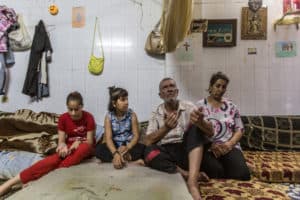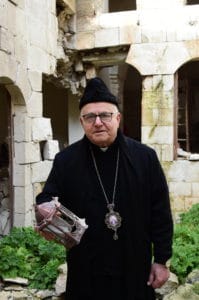Syria: Sanctions only make people ‘suffer and become poor and miserable’
TEN YEARS AFTER THE SYRIAN CIVIL WAR BEGAN, the project partners of Aid to the Church in Need (ACN) sharply condemn the ongoing sanctions of the West. They have fallen far short of their actual objective of weakening the Assad regime, Melkite Archbishop Jean-Clément Jeanbart of Aleppo, explained to ACN: “They will have no effect on the government and their policies, because the government is shielded from the effects of the sanctions.”
However, all the more devastating are the effects of the trade and foreign exchange restrictions on the civilian population. “People no longer have enough food, fuel, gas to heat their homes, and electricity,” Archbishop Jeanbart said, adding that the people are no longer able to take out loans to finance larger purchases; “the sanctions have no result other than making people suffer and become poor and miserable.”

In an interview with ACN, Sister Maria Lucia Ferreira elaborated on the implications of the West’s sanction policies. The sister is a member of the Order of the Unity of Antioch and lives in the monastery of Mar Yakub in Qara, close to the Lebanese border. “The situation is growing ever more dire; the people are on the verge of starving to death. Some have already died,” Sister Lucia reported.
According to Sister Ferreira, the precarious situation was created not only by the conflict that has been going on for ten years, but also by the sanctioning policies and the impact of the COVID-19 pandemic. “The prices are just going up and up. It is difficult to survive.” She believes that the most pressing problem is the scarcity of raw materials, which has made it impossible for many to heat their homes. “The people are standing in line to buy petrol or heating oil, but often leave empty-handed. Fuel is very scarce because there is little wood in this region,” the sister explained. She also talked about the severe shortages in electricity supply that have yet to be resolved. “There are times when we are without power for 12 hours—and when it works, it is often only for half an hour.”

Instead of putting economic pressure on the Syrian government, Archbishop Jeanbart calls on the West to begin negotiations with President Bashar Assad. “There needs to be a fair dialogue. The West can bring pressure so that the government agrees to find a way to peace and change some of its behavior.”
—Tobias Lehner

